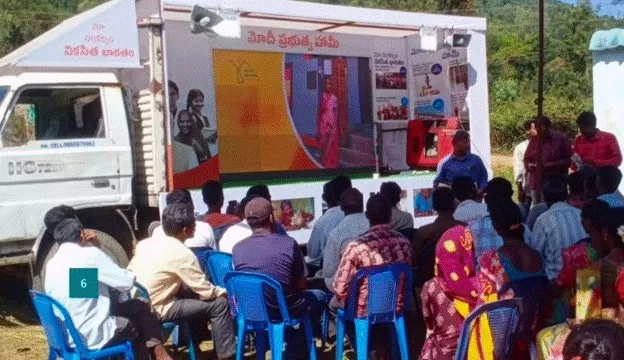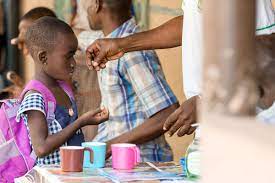In a groundbreaking initiative aimed at saturating the benefits of Central government schemes across the nation, Prime Minister Narendra Modi launched the Viksit Bharat Sankalp Yatra on November 15 from Khunti, Jharkhand. To facilitate immediate services, various camps are being set up by departments such as the postal department, health department, and others. The yatra, designed to inform and empower citizens about the government’s flagship schemes, aims to create awareness and deliver the benefits of welfare programs directly to the people.
On the occasion of Janjatiya Gaurav Divas, Prime Minister Narendra Modi flagged off specially designed IEC Vans carrying messages of government schemes. As a part of On-Spot services under the Viksit Bharat Sankalp Yatra, Health Camps are being organized at the places of halt of the IEC Van in the Gram Panchayats.
In the first week, as on 21 November 2023, 1232 Health camps have been conducted in 203 Gram Panchayats reporting a total footfall of more than 1,66,000 people.
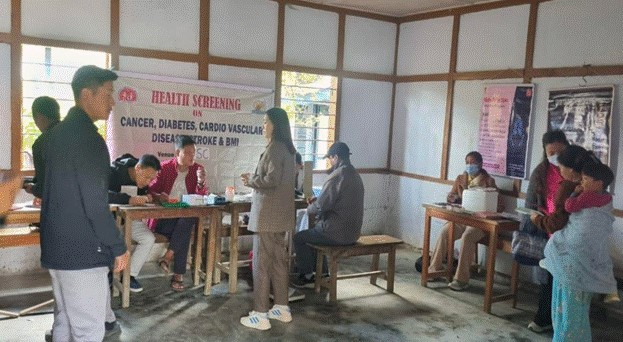
Lower Subansiri, Arunachal Pradesh
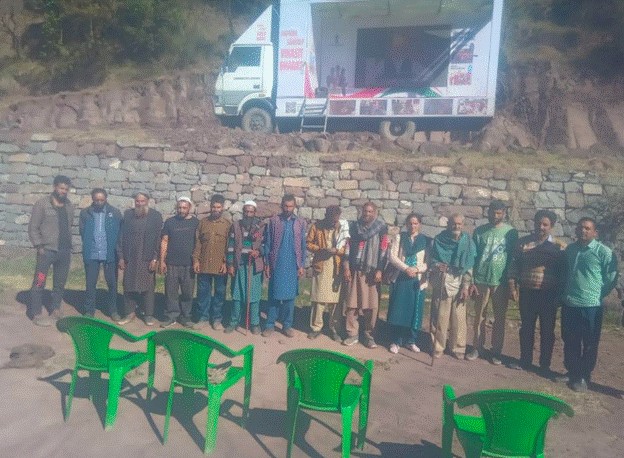
Rajouri, J&K
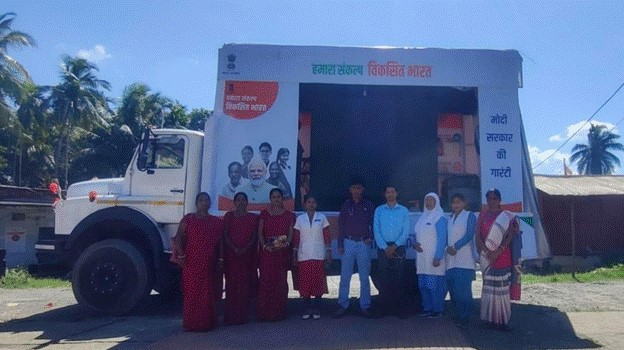
North and Middle Andaman
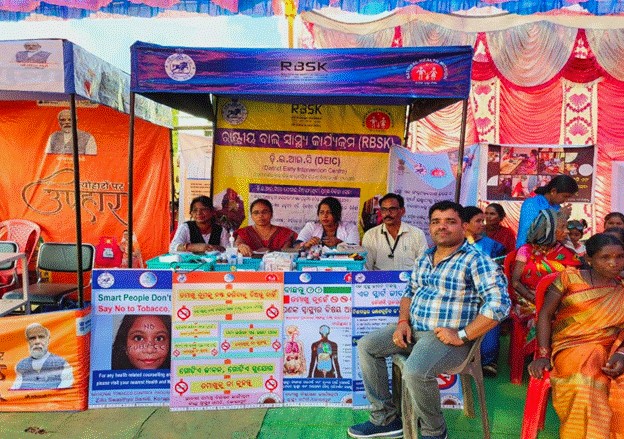
Koraput, Odisha
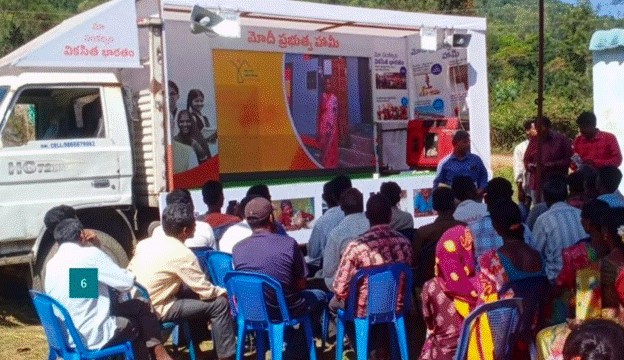
Vanthadapalli ASR, Andhra Pradesh
The following activities are being carried out in the Health camps:
- Ayushman Bharat – Pradhan Mantri Jan Arogya Yojna (AB-PMJAY): Under the flagship scheme of MoHFW for the Viksit Bharat Sankalp Yatra, Ayushman cards are being created using the Ayushman app and physical cards are being distributed to the beneficiaries. By the end of first week, more than 33,000 Ayushman cards were created at the camps and more than 21,000 physical cards were distributed.
- Tuberculosis (TB): Screening of patients for TB is being carried out for symptoms, sputum testing, and by using NAAT machines wherever available. Case suspected to have TB are referred to higher facilities. By the end of First week, more than 41,000 people have been screened out of which more than 4,000 were referred to higher Public Health Facilities.
Under Pradhan Mantri TB Mukt Bharat Abhiyan (PMTBMA), consent is being taken for patients suffering from TB for receiving assistance from Nikshay Mitras. Attendees willing to be Nikshay Mitras are also being provided on-spot registration. By the end of first week, more than 2,500 patients gave consent under PMTBMBA and more than 1400 new Nikshay Mitras were registered
Under Nikshay Poshan Yojna (NPY), monetary assistance is provided to TB patients through Direct benefit Transfer. For this purpose, details of bank account of the pending beneficiaries are being collected and accounts are being Aadhaar seeded. By the end of first week, details of 966 such beneficiaries were collected.
3. Sickle Cell Disease: In areas with predominant Tribal population, screening of eligible population (upto 40 years of age) is being done for the detection of Sickle Cell Disease (SCD) through the Point of Care (PoC) tests for SCD or through Solubility Test. Cases testing positive are being referred to higher centers for management. By the end of first week, more than 24,000 people were screened, out of which 1100 were found to be positive and referred to higher public health facilities.
4. Non Communicable Diseases (NCDs): Screening of eligible population (30 years and above) is being done for Hypertension and Diabetes and cases suspected to be positive are being referred to higher centers. By the end of first week, around 1,35,000 people were screened for Hypertension and Diabetes. More than 7000 people were suspected to be positive for Hypertension and more than 7,000 were suspected to be positive for Diabetes and more than 10,000 people were referred to higher public health facilities.
After completion of one week of Yatra some of the positive reports from the States are as under:
Jharkhand – SCDs screening undertaken in PVTG areas along with VBSP camps. First time sickle cell screening started in all districts of Jharkhand during VBSY. DD and DNH have also added an extra van – Shramyogi swasthya seva mobile van along with the Yatra van .This Van will accompany all route of Yatra.
Jammu and Kashmir – Despite challenges such as the harsh winter and restricted movement in remote areas like GP Dawar, excellent coordination is being done with the army and local volunteers to ensure the delivery of essential services to the population of around 35,000.
Arunachal Pradesh – The community of Tawang district took the initiative to organize educational plays, such as Nukkad and natak, to raise awareness.
Some states also informed of the issues being faced by them. Strike of Community Health Officers (CHOs) in Maharashtra posed a challenge in organizing the health camps but the camps were held successfully with the ANMs and ASHAs carrying out all activities. In Maharashtra, it was also reported that the VANs reached remote areas and hamlets ensuring that these essential services were accessible to all.
This Yatra also played a significant role in mobilizing and promoting the Ayushman Golden Card scheme. Andhra Pradesh and several blocks in Maharashtra demonstrated remarkable success in fostering community engagement during the yatra period. Gujarat used Yatra platform for the efficient distribution of Aadhaar cards and ration cards. Tripura leveraged this platform to effectively issue income certificates and handicapped certificates during the VBSP.
Most states have reported that health camps have facilitated easy identification and mobilization of individuals suspected of having diseases such as sickle cell, tuberculosis, diabetes, and hypertension.

